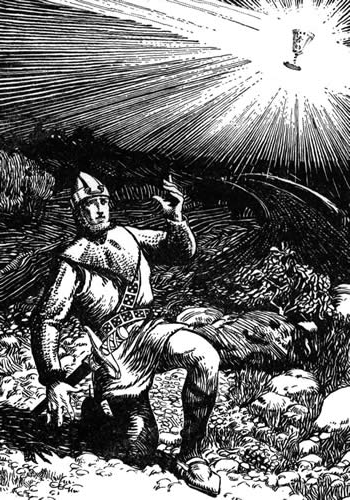
Often, what we want from religion is guarantees.
The mundane world is chaotic, risky, arbitrary and confusing. Efforts that should work fail. The good suffer and wrong-doers prosper. Life does not make sense.
What we want is an assurance that all this is an illusion. We want to hear that the real world, after death or in Nirvana or something, is orderly and consistently meaningful. We want answers—sometimes desperately.
We live in a world in which there are hundreds of religions and other ideologies that claim to have those answers. But, they do not agree with each other.
This just adds to the anxiety and confusion: the domain of religion, too, seems to be chaotic and uncertain. Unless—we hope—we can find the one true path that really does have the answers.
Serious spiritual practice does require committing to a single tradition. This is difficult: how do we know which is the right one? (That question is the essence of this web site.) Initially, many seem plausible, and all seem to have some defect or other. The stakes are high; religion is possibly the most important thing in life. Here, more than anywhere, certainty seems critical.
the kind of answers we want cannot be had, anywhere
Buddhism is unique, as far as I know, in insisting that the kind of answers we want cannot be had, anywhere. Emptiness—inherent uncertainty—is at the heart of Buddhism. For this reason, Buddhism is sometimes described as “The Way of Disappointment.” If we follow it sincerely, Buddhism repeatedly crushes our hope that somehow it will satisfy our longing for answers; for ground we can build on; for reliable order.
When our fantasies that we have found absolute answers are threatened by evidence, we may react by armoring ourselves against our own perception. We may deny the obvious. We may also react by attacking the messenger. Anyone who teaches something that might contradict what we believe must be a heretic, who must be silenced.
When we select a Vajarayana lineage, and commit to a lama, our hope that we have found The Right Answer may be accompanied by lingering fear that some other alternative would have been a better fit.
Throughout the world, the most vicious sectarian conflicts are between religious groups that differ the least. It is easy for Buddhists to be tolerant of Christians, because Christianity poses no threats to one’s identity as a Buddhist. It is just obviously a bad fit. Members of one Buddhist lineage may find the existence of other lineages, even (or perhaps especially) those whose teachings are virtually identical, intolerable—if lineage membership is used as a bulwark against uncertainty. This can lead to self-righteousness, self-justification, and witch-hunts.
we cannot use Buddhism to confirm our selves
If we take emptiness seriously, we must realize that we cannot use Buddhism to confirm our selves. There is never any way to be absolutely sure we have found the right lineage or teacher. We cannot rely on Buddhism to provide absolute certainty about anything other than the non-duality of form and emptiness.
The quandry of uncertainty is at the heart of Dzogchen. Dzogchen teaches us how to live joyfully and effectively in a world that is “empty display”—alternately horrifying and perfect, chaotic and crystalline, alienating and supremely meaningful.
